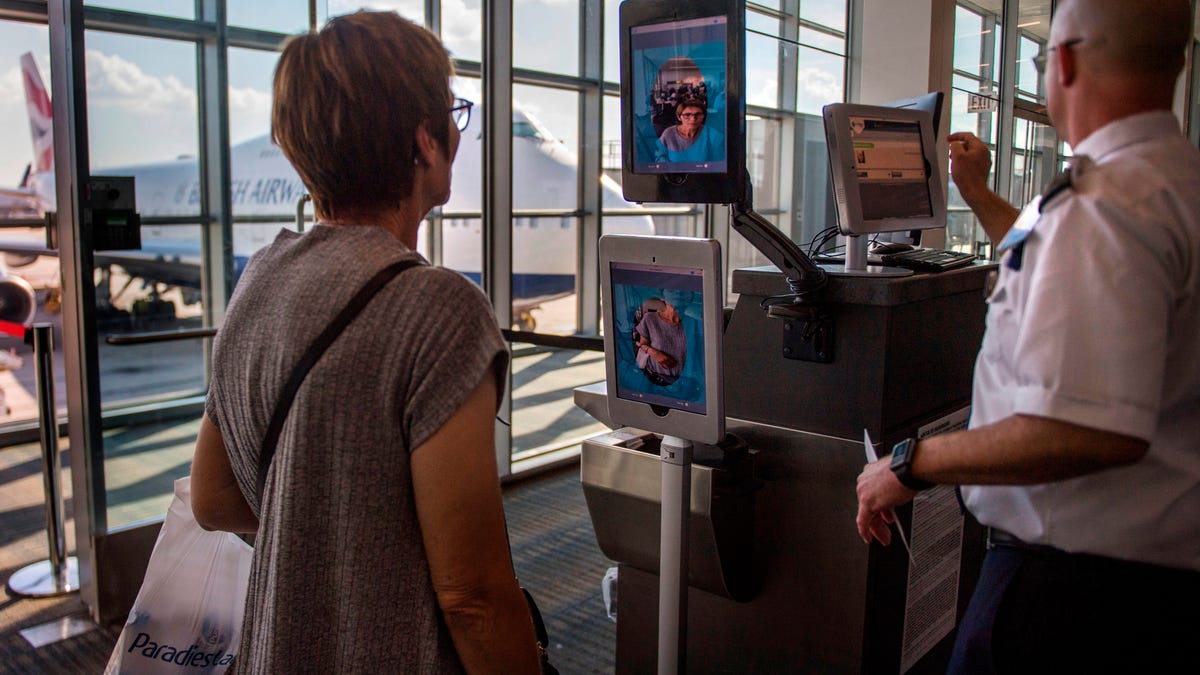Facial recognition tech should be regulated not banned, argues IBM
A handful of cities have already banned police from using such technology.

An official helps a passenger at Washington Dulles Airport with a facial recognition scanner.
IBM wants the US government to regulate facial recognition technology, instead of banning it outright. "Precision regulation" can restrict potentially harmful uses while still allowing for innovation, the company said Tuesday in a white paper posted online.
"The same technology used in different situations by different users should be governed by different rules," Christina Montgomery, IBM's chief privacy officer, and Ryan Hagemann, co-director of IBM Policy Lab, said in the white paper. "It simply does not make sense to subject a smartphone and a police body camera to the same regulatory treatment."
Facial recognition has faced backlash from privacy advocates and lawmakers this year, and a handful of cities have banned the municipal use of the technology. In July, Democratic lawmakers proposed prohibiting public housing units from using technology like facial recognition. Still, facial recognition is on track to become pervasive in airports and shopping centers, and some companies are selling it to police departments.
IBM isn't the only tech company to suggest regulation could be a way to ease fears. Both Microsoft and Amazon, which sells its Rekognition system to law enforcement agencies in the US, have said facial recognition should be regulated by the government.
IBM stirred controversy in March by using Flickr photos shared under a Creative Commons license as part of a collection to train AI face-recognition systems. The data is offered only to academic researchers through a project called Diversity in Faces and is intended to help counter bias that can undermine AI fairness, IBM said.
In the white paper, which was earlier reported by Axios, IBM outlined three policies it said could help regulate facial recognition: requiring notice and consent, implementing export controls, and mandating transparency from law enforcement.
IBM didn't respond to a request for comment.
Originally published Nov. 6, 7:41 a.m. PT.
Update, Nov. 7: Adds more background on facial recognition.

